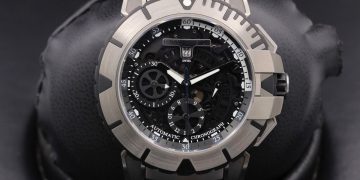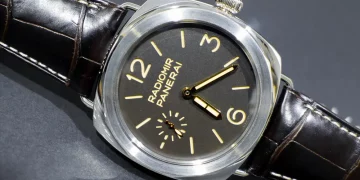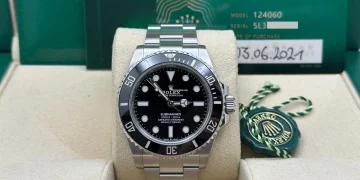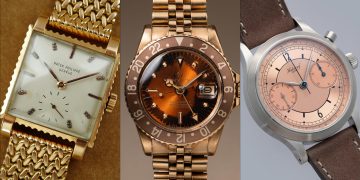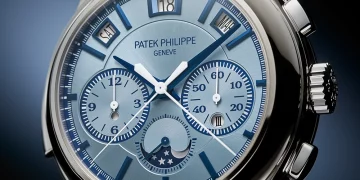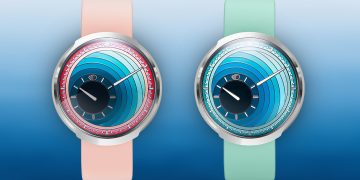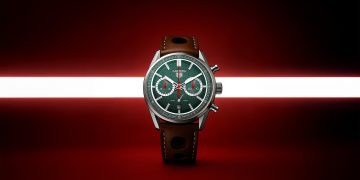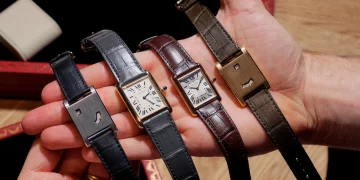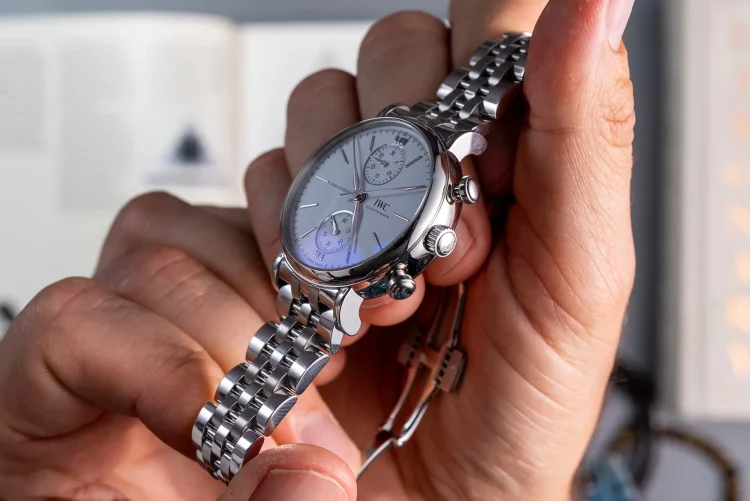Introduction
IWC Schaffhausen is a name synonymous with luxury, precision, and craftsmanship. Owning an IWC watch is not just about telling time—it’s about appreciating a piece of horological history and sophisticated engineering. However, like any finely crafted product, an IWC watch requires regular care and maintenance to ensure it continues to function at the highest level. Whether it’s a classic Portugieser, a rugged Big Pilot, or a technical marvel like the Ingenieur, every IWC timepiece is built to last. However, its longevity and performance depend on the owner’s attention to detail and care.
This article aims to provide detailed guidance on the proper care and maintenance of IWC Schaffhausen watches. From daily wear considerations to servicing and repairs, we’ll explore everything you need to know to keep your IWC watch in peak condition.
1. Understanding the Technology and Craftsmanship Behind IWC Watches
1.1 The Precision Engineering of IWC Schaffhausen
IWC watches are known for their exceptional craftsmanship and innovative technology. The heart of any IWC watch is its movement, which is designed and manufactured with utmost precision. From the automatic movements found in the Pilot’s Watch to the complicated perpetual calendars and chronographs of the Portugieser collection, each IWC model incorporates decades of engineering expertise. Understanding the complexity of these movements is essential for proper maintenance.
- Caliber Movements: IWC’s collection of in-house movements such as the Caliber 52010, Caliber 89900, and Caliber 69000 are a testament to the brand’s commitment to both precision and longevity. Proper care ensures these movements continue to perform flawlessly.
- Materials and Technology: Many IWC watches feature advanced materials like Ceratanium, titanium, and high-tech ceramics, which demand unique care and handling.
1.2 The Importance of Craftsmanship in Watchmaking
IWC’s watches are a blend of traditional Swiss craftsmanship and modern technological advancements. The movements are assembled by skilled watchmakers who take great pride in every detail. The exterior, including the case, bracelet, and dial, is designed for both durability and aesthetic appeal.
Maintaining these aspects requires a delicate balance of cleaning, protecting from damage, and ensuring that the watch’s mechanical elements are kept in optimal condition.
2. Daily Care and Usage Tips for IWC Watches
2.1 Daily Wear Guidelines
Wearing an IWC watch is part of the experience of owning a luxury timepiece. To preserve its beauty and functionality, it’s essential to follow some basic rules of care:
- Avoid Water Exposure: Even though many IWC watches are water-resistant, it’s crucial to understand their water resistance rating. The Pilot’s Watches and Portugieser models, for example, are generally resistant to water but should not be submerged for extended periods.
- Keep the Watch Clean: Regular cleaning is essential. Dirt, dust, and oils from your skin can accumulate on the watch, affecting both its appearance and performance. Use a soft cloth to wipe the case and bracelet, and a mild cleaning solution to remove stubborn dirt.
- Avoid Extreme Temperatures: Extreme temperature fluctuations can affect both the accuracy and material integrity of the watch. Try not to wear your IWC in extreme heat, cold, or high humidity conditions for long periods.
- Wind Your Watch Properly: If you own a manual wind model or an automatic IWC watch that isn’t being worn regularly, it’s important to wind it properly to keep the movement running. Most IWC automatic models only need to be worn for 12-24 hours to stay powered up.
2.2 Protecting Your Watch from Physical Damage
IWC watches, while built to withstand the rigors of daily life, can still suffer from scratches, dents, and other forms of physical damage if mishandled:
- Avoid Impact: IWC watches, especially the Big Pilot or Ingenieur, are rugged, but should still be protected from significant impacts. A strong blow or fall can misalign or damage the internal mechanisms.
- Use a Watch Box: When not in use, store your IWC watch in a watch box or case to protect it from dust, dirt, and physical damage.
- Be Cautious with Magnets: Strong magnetic fields can affect the movement’s accuracy. IWC offers soft iron inner cases in many of its models (e.g., the Ingenieur) to protect against magnetism, but it’s still wise to avoid placing the watch near electronic devices that generate strong magnetic fields.
3. Regular Maintenance and Servicing
3.1 How Often Should You Service Your IWC Watch?
Like all high-quality mechanical watches, IWC watches require regular servicing to ensure their longevity. While the exact frequency may vary depending on the model and usage, a general rule is to have your IWC watch serviced every 5-7 years.
- Service Intervals: Watches with complicated movements, such as chronographs or perpetual calendars, may require more frequent servicing, as these intricate mechanisms are sensitive to wear.
- Lubrication: Over time, the lubricants in the watch’s movement can degrade, leading to increased friction and wear on the components. Regular servicing ensures that these lubricants are replenished, which is essential for keeping the movement running smoothly.
3.2 Choosing an Authorized Service Center
IWC watches should always be serviced by an authorized service center. These centers employ trained watchmakers who are familiar with IWC’s proprietary movements and can carry out repairs or maintenance using original parts. DIY repairs or unauthorized servicing may compromise the integrity of your watch and void its warranty.
IWC’s authorized service centers follow strict standards to ensure that every timepiece is returned to factory specifications.

4. Common Issues and Troubleshooting
4.1 Problems with Accuracy
One of the most common issues with high-end mechanical watches is the loss or gain of time. If your IWC watch is running too fast or too slow, it may require adjustment or servicing. Causes could include:
- Magnetic interference: Strong magnetic fields can disrupt the movement.
- Mechanical issues: A lack of lubrication or wear on components can affect timekeeping accuracy.
4.2 Water Resistance Concerns
If you notice any condensation or moisture inside the case, it’s essential to have the watch examined by an expert. Although IWC watches are typically water-resistant, gaskets and seals can wear down over time, leading to leaks. Routine maintenance ensures these seals remain effective.
4.3 Damage to the Crystal or Case
Scratches on the crystal or case can be a common issue, especially if the watch is worn in environments prone to physical contact. Sapphire crystal used in IWC watches is highly resistant to scratches, but it’s not entirely scratch-proof. If the crystal is damaged, it’s essential to have it replaced by a professional to maintain the watch’s aesthetic appeal.
5. Caring for Specific IWC Collections
5.1 The IWC Pilot’s Watch
The Pilot’s Watch is one of IWC’s most iconic and rugged collections, designed for aviation professionals. Despite its durability, it still requires proper care:
- Crown Protection: The crown on Pilot’s Watches is particularly sensitive to damage. Always ensure the crown is securely screwed down to maintain water resistance.
- Strap Care: If your Pilot’s Watch features a leather strap, regular cleaning and conditioning will prevent it from drying out or cracking. A rubber strap requires less maintenance but should still be cleaned regularly.
5.2 The IWC Portugieser
The Portugieser collection is known for its elegant design and complex movements. These watches demand extra care due to their complicated mechanisms:
- Handle with Care: Due to the size and mechanical complexity, avoid dropping or knocking your Portugieser watch.
- Storage: Keep the watch in a watch box when not in use to protect the sapphire crystal from scratches.
5.3 The IWC Ingenieur
With its robust engineering and magnetic protection, the Ingenieur collection is designed for people working in environments with high magnetic fields. Still, proper care is essential:
- Magnetic Exposure: Although the Ingenieur is resistant to magnetism, avoid prolonged exposure to strong fields, such as those from cell phones and computers.
6. Conclusion: The Key to Longevity – Proper Care and Maintenance
Owning an IWC Schaffhausen watch is an investment in both luxury and performance. By following the proper care and maintenance guidelines outlined above, you can ensure that your timepiece continues to deliver exceptional performance and retains its timeless elegance for many years.
Regular maintenance by authorized service centers, proper daily care, and attention to the unique needs of each model will help preserve the value and functionality of your IWC watch. Whether you own a Pilot’s Watch, Portugieser, or Ingenieur, treating your timepiece with the care it deserves is essential to keeping it in optimal condition.



